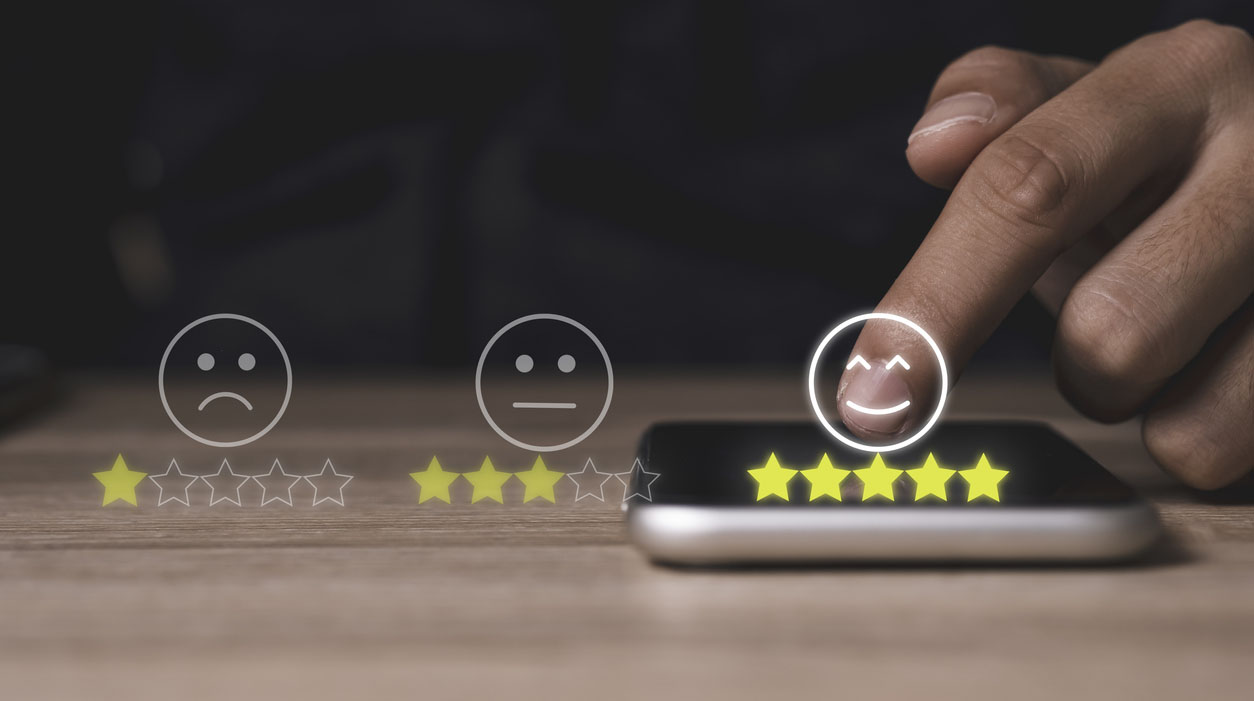“You can please some of the people all of the time, you can please all of the people some of the time, but you can’t please all of the people all of the time”. ― John Lydgate, 14th century poet.
Truer words have never been spoken… Especially in these days of instant online social posting, your business reputation can turn negative overnight with just one bad review.
Reviews — How They Affect Your Business
If you believe ‘word of mouth’ is the best publicity, you are right. However, nowadays ‘word of mouth’ is conducted online and ignoring it will be to your detriment.
True story… A North American appliance manufacturer was having difficulty breaking into a certain market. After doing research, they found out they were receiving a fair number of negative reviews on online forums. Unbeknownst to them, some of their users who had warranty issues, bad product experience, misunderstandings, etc. posted lengthy negative reviews. In addition, some of their competitors active in these forums added fuel to the fire.
The lesson is… if you don’t take care of your online image, someone else will do it for you.
As a small to medium business in the hospitality industry, you may think you do not have time to react to every online review posted about your establishment.
Can you afford to ignore your bookkeeping, room cleaning, booking calendar? If anything, your online reputation is even more important! With a bad online reputation, your bookings will start to plummet. Conversely, a well managed online reputation will guarantee additional business.
Here is the proof:
• In 2020, 93% of consumers used the internet to find a local business, with 34% searching every day
• The industries in which consumers are most likely to have read reviews are:
- Restaurants
- Hotels
- Medical
- Automotive
- Clothing stores
• Only 48% of consumers would consider using a business with fewer than 4 stars
So, how do you go about managing your online reputation?
- Track the sites where your customers are most likely to read and leave reviews. i.e. TripAdvisor, Airbnb, yelp etc. If you are not sure, ask them.
- While your customer is on your property, keep confirming if they are having a good experience and what you can do for them to enjoy their stay even more.
- Do small, unexpected things for them. A small gift for a child, a free drink or dessert on the house, etc. It goes a long way.
- Be bold, ask for positive reviews. “Are you having a good time? If so, we are trying to increase our ranking on (TripAdvisor, yelp etc.) Would you mind leaving a review for us on that site? Here is a free (drink, pass, rental) for your support”. It is very effective, and people respond well to it.
- Train yourself and your staff to be pro-customer and go out of your way to be helpful and friendly.
- Check your reviews every day or at least multiple times a week. When you get a positive review, leave a comment thanking the customer and that you enjoyed their company. You look forward to seeing them again soon.
However, you will get bad reviews. Count on it. Some of them will be totally unwarranted.
Even so, here is how not to react… In 2020, a resort had a customer who was trolling them by posting online negative reviews. The hotel tried to resolve the issue, but this person kept posting a misleading version of an event. To make a long story short, the resort had this customer charged with slander, and he spent a few days in jail before he could post bail. TripAdvisor posted a strong warning on this resort page about these events. Furthermore, it created a lot of bad international press for this popular resort location.
Who lost this battle of the wills, do you think? Did it matter who was in the right?
Of course, this is an extreme scenario, but a warning to us all on how not to engage a negative reviewer.
Here are some tips on how to best manage negative reviews:
• Do not ignore criticism.
• Never attack a reviewer.
• Apologize for the bad experience and offer compensation or assistance if you can.
• Always be polite and professional.
If you’ve established your online reputation, you may not have to defend yourself very much. Your own customers are likely to come to your defense!
To conclude the experience mentioned at the outset, the manufacturer initially mentioned took positive steps to overcome the negative postings. They began by posting helpful suggestions to address problems, even when they were not about their products. They sent Direct Messages (DM’s) to users who had issues and offered free parts, repairs, replacements etc. Eventually, many users became strong supporters (influencers) of this brand, and their reputation turned around.
This proved to be their most effective and inexpensive publicity and it can be yours too!
In the next installment of this series, we will discuss additional steps you can take to make social media and your customers the most effective advertisement tool for your business.




